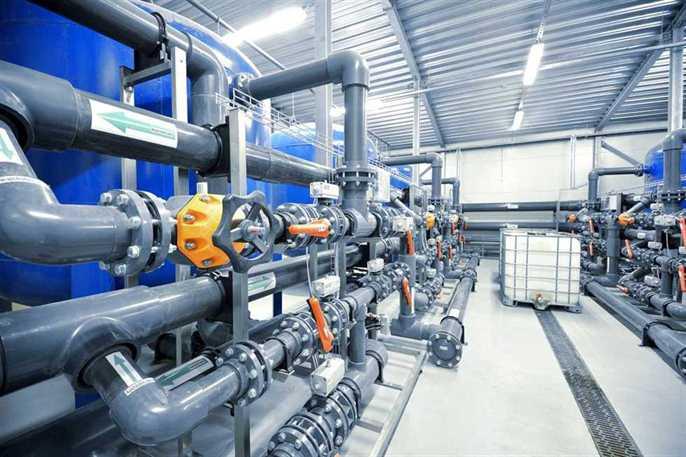
The basics of commercial plumbing and residential plumbing aren’t actually that different – fluid dynamics don’t really care about your building’s occupancy. The difference between the two, then, is chiefly the size and scope of your plumbing system. You will, of course, still use pipes to do one of two things: bring clean water in, or bring wastewater out. Where this water goes and what it’s composed of, however, can vary a bit.
Let’s start with the sheer scale of commercial plumbing. A storefront probably won’t need a much bigger system than your average house. A mall, on the other hand, is going to have a lot of fixtures and pipes leading to and from it. Those pipes and fixtures will also be used much more frequently than in a residential scenario. You might have hundreds of people using your fixtures everyday.
That means routine maintenance and inspections are going to be much more useful – and you’ll want them to happen much more frequently. You may also need to opt for higher capacity pipes, made out of more durable materials.
You’ll also want to consider the various different functions of plumbing in a commercial application. Have a soda machine (or multiple soda machines)? You’re going to need to hook them up to a water supply in order to get carbonated water. Want to pass your fire inspection? You may need fire sprinklers which, of course, need to be hooked up to your water supply.
In other words, commercial systems don’t just exceed residential systems in capacity – they also exceed them in complexity. Urinals, water fountains, disposal of hazardous chemicals – all of these things can require their own specific security measures and pipes. You might also have complex plumbing-related heating systems, like boilers.
Commercial systems are also more concerned with saving money than most residential systems will be. That’s, in part, because low-flow fixtures and energy-efficient boilers tend to cost more money up front, but save money over long-term periods of use. Given that commercial systems see much more use than residential systems, the cost-benefit analysis tends to weigh in favour of high-efficiency fixtures for commercial enterprises.
The scale and complexity of commercial plumbing mean that it’s essential to find a contractor who specializes in commercial plumbing services. You want to take a holistic approach to commercial plumbing systems, finding ways in which you can decrease costs over time while still providing the security and reliability that are essential to commercial enterprises.
